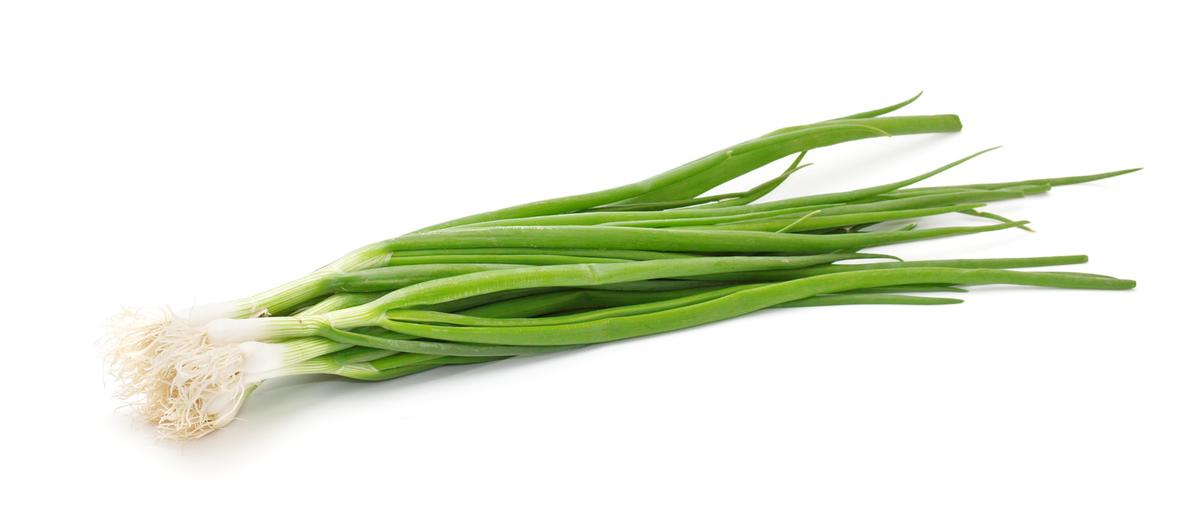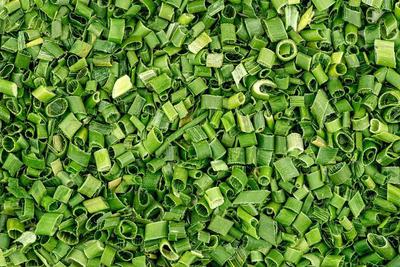🧄 Lets look at can Dogs Eat Chives? - Toxic!
They’re part of the onion family, given this are they toxic too? The answer is yes!

Summary
Do not feed chives to your dog, they are toxic as they contain thiosulphate being part of the onion family, this can cause cell membrane damage which can affect oxygen being distributed causing serious health problems such as oxidative haemolysis aka anaemic to occur.
Chives
Chives are part of the onions family which are used medicinally in many cultures around the world. They are commonly added to soups, stews, sauces, salads, sandwiches, and baked goods. They are also used as flavoring agents in some alcoholic beverages like beer and wine.
The leaves of chive contain a volatile oil that is irritating when inhaled or ingested and can cause dermatitis in animals and even humans. The flowers also have an irritant effect on mucous membranes. Chives may be poisonous if eaten by dogs because they contain thiosulphate as mentioned above which causes vomiting, diarrhea, salivation, tremors, convulsions, collapse, coma, death. Dogs are more susceptible to the effects than cats. Ingestion usually results from eating plants growing near roadsides where there has been heavy traffic. It is not known whether this plant should be considered toxic for other animals such as horses.
Toxicity to pets
The onion family is one of the most toxic families in the plant kingdom. The bulbs contain a number of compounds that are highly poisonous and can cause death if ingested by animals or humans. Onions are very dangerous to pets. When handling these vegetables, keep children away from them at all times. Do not allow pets access to these foods. Keep them out of reach of young children and pets.
Unfortunately, it’s a common cause of poisoning in dogs and cats. The toxic effects are due to the presence of thiosulphate and sulfoxides. These substances produce irritation of the eyes, nose, mouth, throat, stomach lining, liver, kidneys, pancreas, spleen, heart, blood vessels, lungs, brain, nervous system, skin, bones, muscles, joints, glands, and reproductive organs. Symptoms include depression, weakness, loss of coordination.

Other dangerous foods
❌ Garlic
Garlic contains several active ingredients including: Allicin, Diallyl disulfide and S-Allylcysteine. Garlic is generally safe for use in food products but its odor makes it difficult to store without spoiling. Its pungent smell quickly dissipates once cooked so you don’t need to worry about cooking fresh garlic cloves too long. However, raw garlic can still make you sick. Raw garlic can cause nausea, abdominal pain, headache, dizziness, confusion, blurred vision, muscle twitching, difficulty breathing, irregular heartbeat, fainting, and sometimes death.
Raw garlic poses serious health risks to pets. Some pets will chew on it while others will swallow it whole. Both cases result in severe gastrointestinal upset. This includes vomiting, diarrhea, bloating, dehydration, weight loss, lethargy, fever, and possibly death. Be sure to remove any uneaten garlic from your home.
❌Celery
Celery has been known to cause intestinal upsets when eaten by pets. Celery leaves have caused problems such as vomiting, diarrhea, and excessive salivation. Dogs who ate celery were found to develop ulcers in their digestive tract. Cats who consumed large amounts of celery developed signs similar to those seen in human beings suffering from peptic ulcer disease.
Raw celery should never be fed to pets because they cannot process it properly. Even though celery is considered edible, there are no studies proving that it does not pose a risk to pets. Therefore, avoid feeding celery to your cat or dog. You might want to consider giving them something else instead. For example, give them chicken broth or canned pumpkin.
What are the signs of illness?
Watch out for the following:
Vomiting - Vomit often; vomit blood or coffee-coloured bile is a bad sign.
Diarrhea - Diarrhea occurs more than twice daily. It usually lasts longer than 12 hours. There may also be bloody stools.
Dehydration - Dehydrated pets appear thirsty and weak. They drink less water than usual. Their skin feels dry and flaky.
Fever - Fever above 102 degrees farenheit.
Lethargy - Lethargy means lack of energy. A tired animal appears sluggish and lacks interest in normal activities. This will occur in onion/chive poisoning due to red blood cell damange
When should I see a vet?
If your dog shows any signs of being poisoned by chives, contact your veterinarian immediately. They will need to know exactly what was ingested, whether there were multiple exposures over time, and also the amount consumed. If possible, try to get some samples of the chives that your dog had been fed before the incident occurred.

What’s the diagnosis for chives poisoning in dogs?
If your dog has eaten chives you need to get him checked out immediately. If she/he is showing any of the classic signs of an acute onset of anaemia then it would be wise to call your vet straight away. However, if your dog shows no obvious signs of illness, there is still a chance that his body might have started producing its own natural defences against the toxins present in chives.
Treatment for poisoning
There are many different treatments available for chives poisoning in dogs. Treatment options depend upon the severity of the condition, how much was ingested if there were any complications and the age of the dog. If it’s possible to determine the exact type of poison ingested, then specific medications should be administered accordingly.
For example, if they ate only a small amount, then antihistamines would likely work best. Onions contain histamine so they cause allergic reactions in people as well as animals. Antihistamines block the action of histamine on cells throughout the body. This reduces inflammation and speeds recovery from the initial reaction caused by the ingestion of the onion.
However, if they ate several onions, then treatment needs to focus on preventing further damage to internal organs. One way to do this is to administer activated charcoal. Activated charcoal binds to poisons like those found in onions. Once bound, the toxin cannot pass through the intestinal wall into the bloodstream where it can affect vital organs. Another option is to use intravenous fluids such as D5W.
The most common practice is a blood transfusion, this is due to the damage caused by chives, affecting red blood cells ability to carry oxygen due to cell membranes being broken down. This treatment is only needed if a large volume of chives or onions were consumed and mass cell damage occurred, so don’t worry too much.
Summary
In conclusion, if your pup ate some human food with a small number of chopped chives on they should be fine. If you suspect your dog may have eaten a large number of chives or other poisonous plants, make sure you take them to your local veterinary clinic right away. Your vet will be able to diagnose the situation quickly and treat your pet with the appropriate medication.